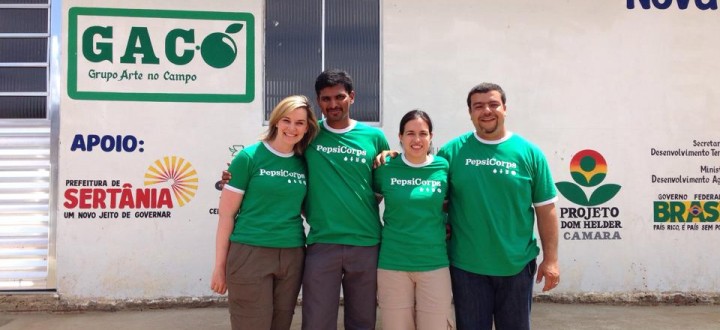This is Part II of the PepsiCorps Lives Performance with Purpose in Brazil series. Read Part I here.
“We have hope because you are here,” said Lucia in Portuguese. “We know that we needed help, but were not able to get it so far. We hope that this program will help us get a push to a better future for our families.”
Lucia’s “hope” for our team changed my perception about this project up until that moment. It was no longer simply a personal challenge or a corporate development program. My primary objective was to meet—or exceed—the needs of Lucia and her community. Each member of the team became even more committed to the impact we could have. As many times as she repeated the word, our will grew stronger to do all we could to help.
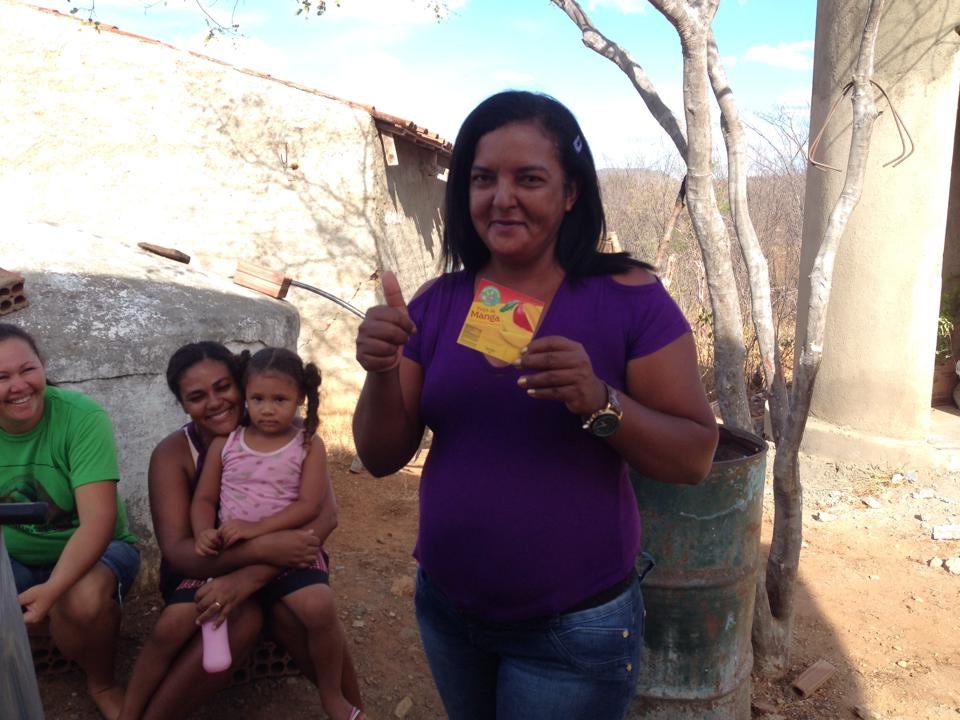
Lucia gives the camera a thumbs up in Afogados.
Lucia, and her colleague Josy, two seemingly shy ladies representing the local community, had driven over 30 kilometers on their motorcycle to come and meet our team of PepsiCorps participants at our hotel in Afogados da Ingazeira. In the small conference room of our hotel, the team at PYXERA Global had organized an introductory meeting at which each of the participants and local clients had a chance to share brief introductions and their expectations from the PepsiCorps program.
For this year’s PepsiCorps project in Brazil, eight PepsiCo employees from different functions came together from around the globe, in the small town of Afogados da Ingazeira, Brazil. It was a long seven-hour drive from Recife, the capital of the state, to Afogados. The team used this opportunity to get to know one another for the first time. At this point, all we knew was that the eight of us were to be divided into two teams working on sustainable agricultural projects.
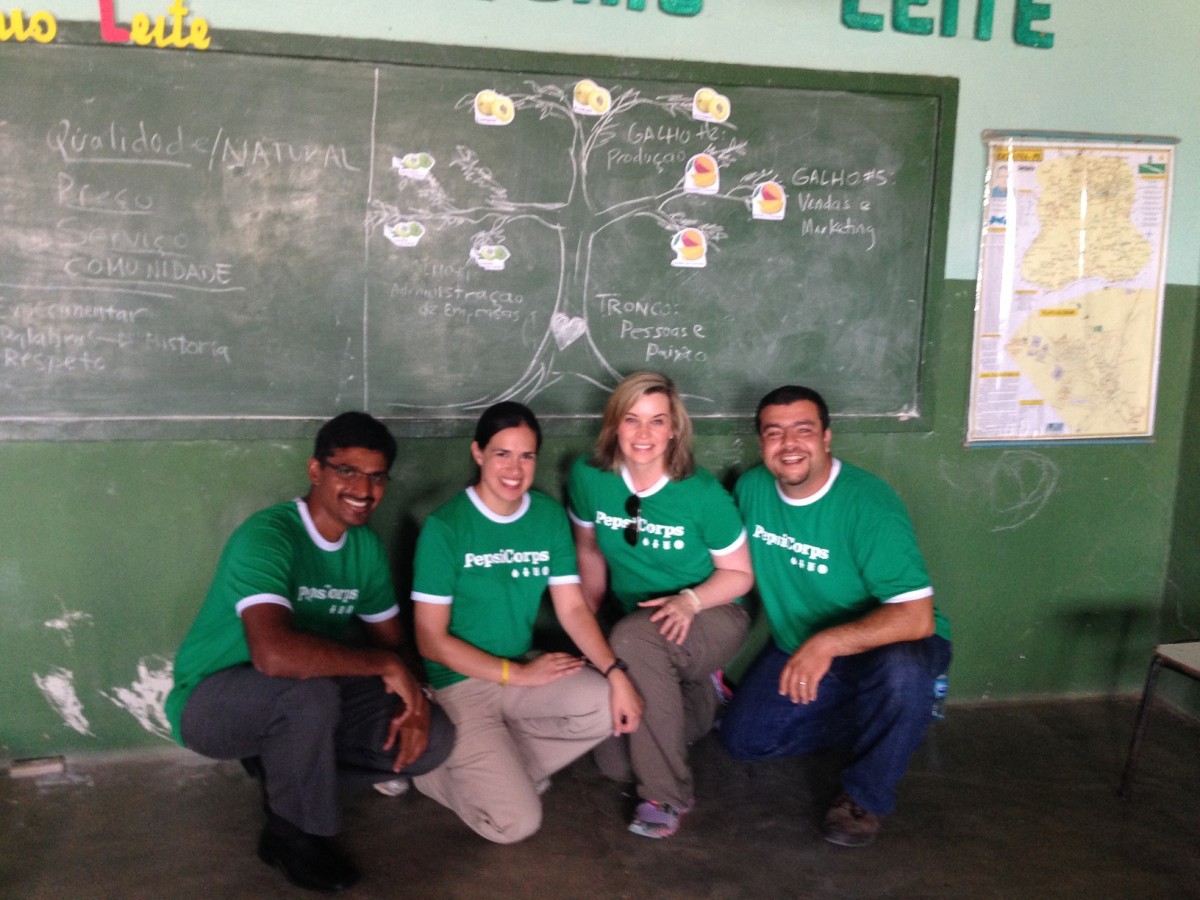
Aly (right) and Team Nova Vida.
One team would work with an NGO on building the marketing and communication capability of their staff and helping them establish a marketing strategy aiming to promote organic food production and consumption. Our team would work with Projeto Dom Helder Camara, a local government project focusing on supporting agricultural families, and the local community of Quiemada Nova to develop a commercialization strategy for their recently launched fruit-pulp business. The team had diverse backgrounds ranging from sales and marketing to manufacturing, operations and food science. A day earlier, after meeting with the mayor of the city for an hour, he invited us to attend a meeting with a number of community leaders in a nearby settlement. It was a great opportunity to learn first-hand about the challenges the people faced in the semiarid region. Every challenge revolved around water, the most precious resource for human life that was increasingly unavailable due to the region’s ongoing severe drought, considered to be the worst in 60 years, which has been affecting much of northeastern Brazil for several years.
Finding Our Community Roots
Lucia was the community’s natural leader. She grew up as an orphan and treated the community as her family. Courageous, independent, and visionary, she inspired her people and all of us. The 34 agricultural families forming the community depended on farming and raising goats and chickens for their livelihoods. Interestingly, the human struggle is similar everywhere. People around the world have similar hopes and basic needs and surprisingly similar challenges and pain points. Although Brazil and Egypt, my home, are thousands of kilometers apart, I was surprised with how much the people of both countries had in common, especially in rural communities.
Living in a rural Brazilian village for the past month taught our team a lot. This was much more than a consulting project, as many of us had previously thought. Each one of us dived into the experience with our minds and hearts. For a whole month, we lived with the local community, ate together, planted trees together, and shared our thoughts and dreams.
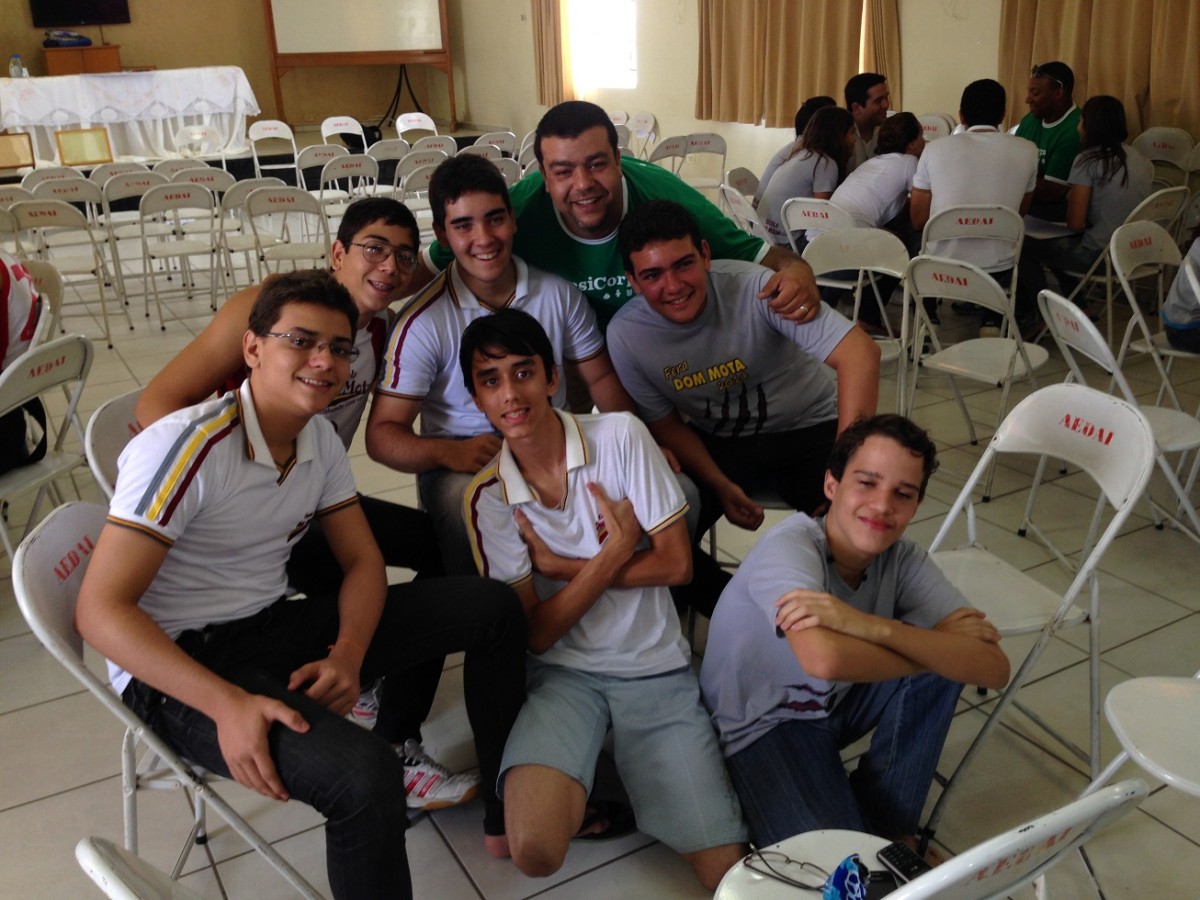
Aly and local students in Afogados.
In addition to the language barrier, we struggled to identify the community’s real problems. We needed to develop reasonable and sustainable solutions that they would be able to implement on their own after our departure. We had to completely reimagine everything with “the eyes of our customer” and understand the impact of our decisions on people’s lives. We also had to develop simple ways to communicate our findings which often included complicated concepts such as unit costing and profitability, accounting basics, and the importance of customer relationship management to the community members during our training workshop. I’m quite certain that all those experiences will influence the way we think and do business back home.
Now, Discover Your Strengths
Working with a global team from different cultures and with diverse backgrounds has made this experience unforgettable in its own way. The team passed through the different stages of Storming, Norming, and Performing. Reaching the High Performing stage in such a short period of time, despite the difficulties arising from our differences and the project nature, required excellent leadership skills from each member of the team.
There was no sole leader for our team. Our dynamic environment forced every one of us to play a leading role, based on our unique knowledge, skills, and relevant experiences. The rest of the team always supported their momentary leader, which allowed the team to integrate the strengths of its members while avoiding the weaknesses of any individual. This challenging experience showed me how much high-performing teams can achieve in a short period of time, once they build trust. Moreover, seeing the exceptional qualities and capabilities of PepsiCo’s people worldwide, I’m even more confident now of our company’s bright future in the years to come.
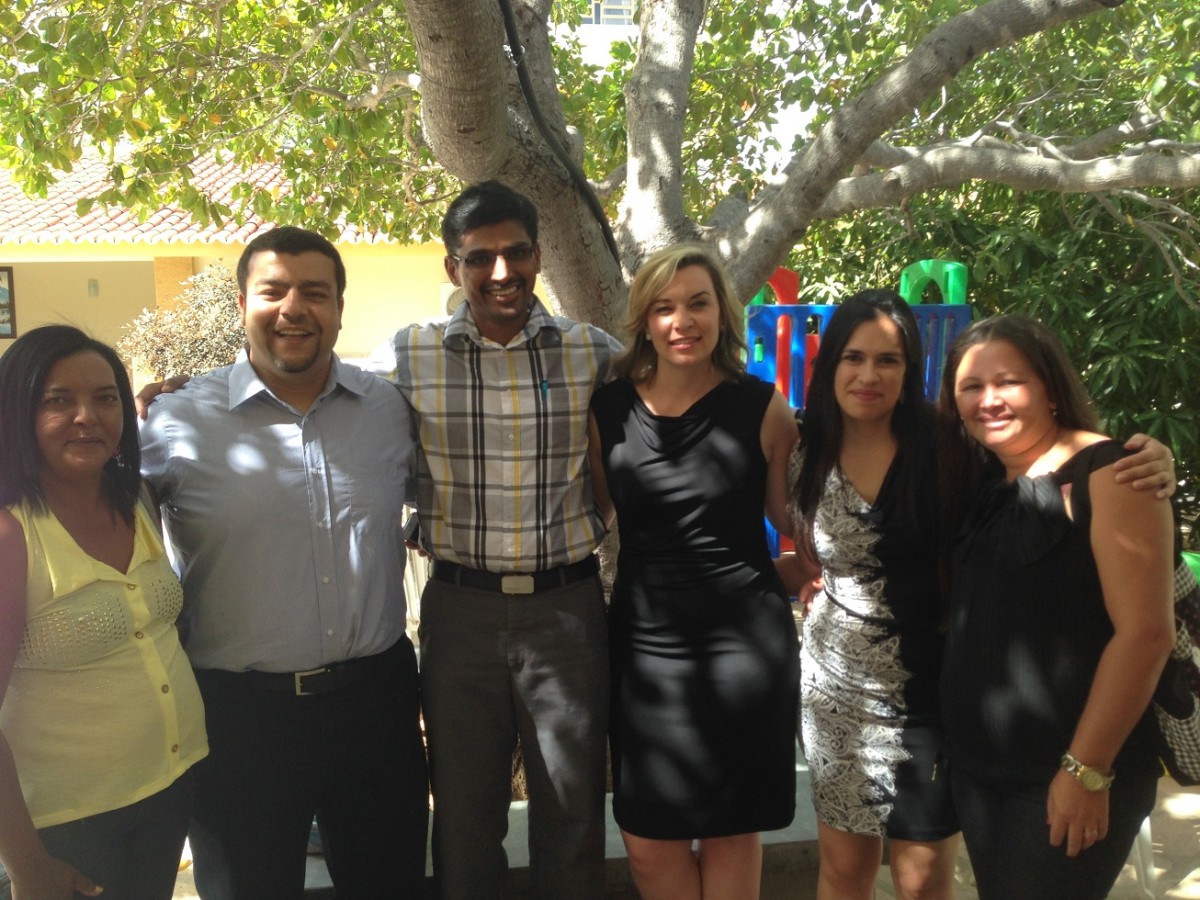
Team Nova Vida with Lucia and Josy on the PepsiCorps’ last day in Afogados.
Regardless of the success, recognition and generous appreciation we received from our clients, our partners and our senior leaders, what made each of us most proud was the work itself, the extended time and effort that every one of us has dedicated to an important cause.
Meet Your True Self
On a personal level, I appreciated the opportunity to work on diverse business areas, from finance, accounting and fundraising to sales and marketing and of course manufacturing operations and human resources. No other training program could have provided the same exposure in such a short period of time. How else could someone work that hard, have so much fun, serve and impact people’s lives, and learn Portuguese in one month?!
Being the first Egyptian to join PepsiCorps, I was proud to be chosen for this program. After living this experience for an entire month, I came to realize how privileged I was to be given this opportunity. Not only had I acquired and developed a number of professional and personal skills, but I’d also learned and am still learning more and more about myself. Being immersed in such a transformational environment requires a lot of reflection which, in turn, increases self-awareness. After this life-changing experience, I believe I have the obligation and ability to have a similar impact on rural communities back home.
On the last day of the program, Lucia and Josy stood with the rest of the team in the very same place where we first met. We said our goodbyes again and again, trying to extend our last moments together. In only a few short weeks, the bond between us had grown surprisingly strong. I never expected our last goodbyes would be so painful. Yet, I take comfort knowing that my network of true friends around the world is a little bit bigger. And, Afogados da Ingazeira will always feel a little bit like home.
Stay tuned for Part III of the PepsiCorps Lives Performance with Purpose in Brazil series out next week!
Aly ElSherei
Aly ElSherei is the Productivity and Sustainability Senior Manager for PepsiCo’s Snacks Business in Egypt. He joined PepsiCo five years ago, where he has served in several manufacturing and operations roles with the organization. He holds a Bachelor's degree in Electrical Engineering from Ain Shams University and an MBA from the American University in Cairo.

